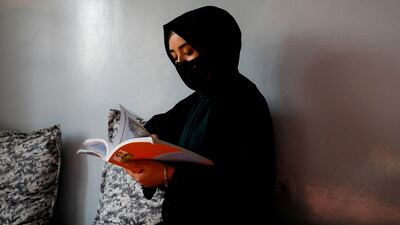Martin Griffiths, the UN's aid chief, is scheduled to visit Afghanistan in the coming weeks and will seek to hold high-level meetings with the Taliban, a UN official announced on Thursday.
“We obviously will seek to meet with the highest possible authorities and we have already engaged with all of them at the highest levels,” Ramiz Alakbarov, deputy special representative of the UN Secretary General, told reporters.
The visit follows a Taliban announcement on Saturday of a ban on female aid workers and comes on the heels of a law that has barred women from attending university.
Mr Alakbarov reaffirmed the UN commitment's to providing humanitarian support and reiterated the importance of dialogue.
“Engagement is necessary, sustained engagement is necessary, sustained dialogue is necessary … there is no alternative to dialogue,” he said.
He also pointed out that the situation in Afghanistan is probably one of the most difficult he has seen in his “30-year career.”
Afghan women living under Taliban rule — in pictures
Mr Alakbarov noted humanitarian needs in Afghanistan were “enormous” and the UN was committed to delivering help.
He said the UN was actively working to have the ban reversed and noted that concerns about modesty and the mixing of the genders could be addressed through dialogue without directly threatening education or livelihoods.
In a joint statement on Wednesday, Mr Griffiths and other heads of UN agencies called on the Taliban to reverse its decision to restrict women from working with NGOs and insisted that women's “participation in aid delivery is not negotiable and must continue”.
“Banning women from humanitarian work has immediate, life-threatening consequences for all Afghans,” read a statement signed by the heads of the World Food Programme, the World Health Organisation, the UN Development Programme, the UN children's fund and the high commissioners for refugees and human rights.
“We foresee that many activities will need to be paused as we cannot deliver principled humanitarian assistance without female aid workers.”

















